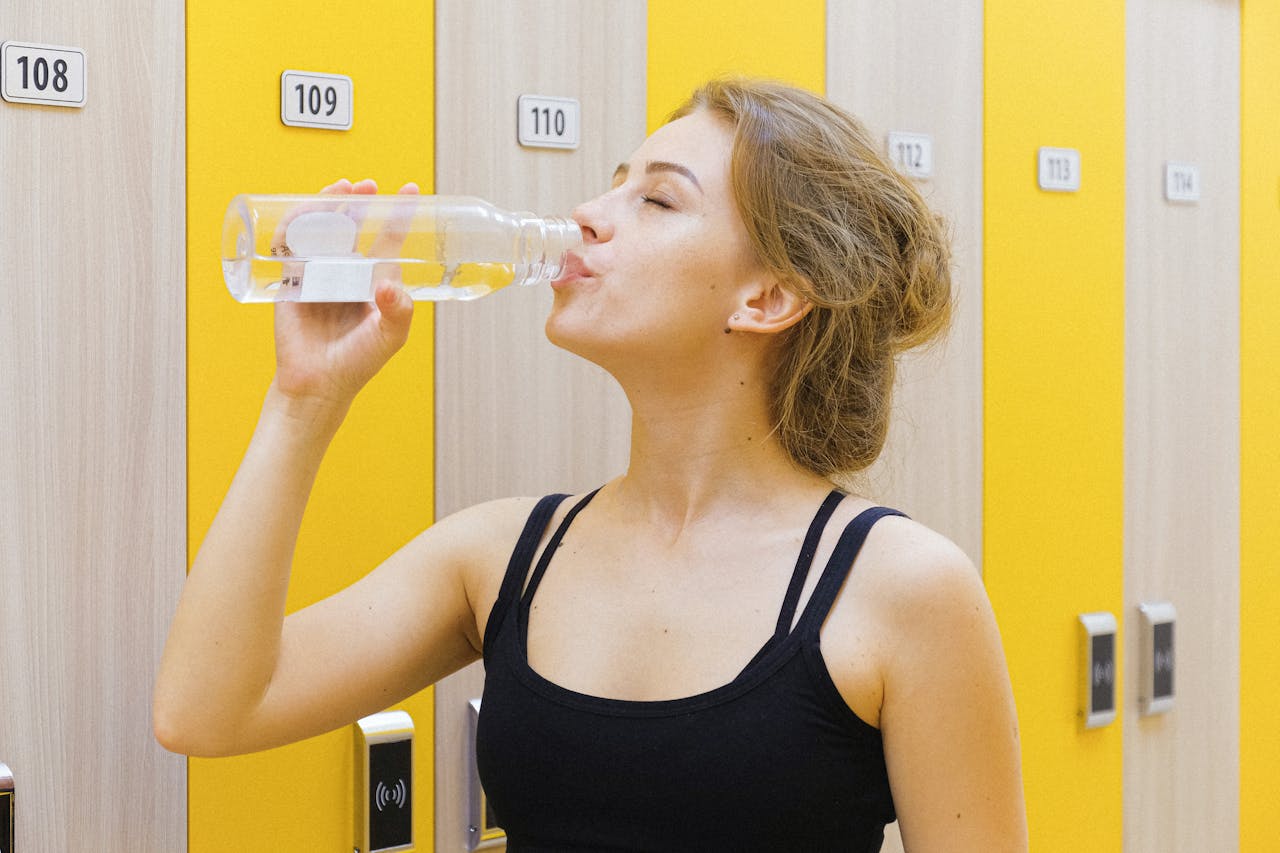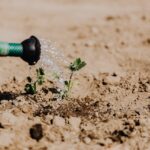Water Intoxication: When Too Much of a Good Thing Turns Bad

Who knew “ordinary” drinking water could pose a hidden danger? It’s unbelievable, right? But in a surprising twist, sometimes you really can have too much of a good thing. Welcome to the unexpected bad side of drinking water called water intoxication, where the advice to ‘stay hydrated’ comes with a caveat.
We’ve all heard it countless times: drink more water. It’s the elixir of life, essential for every function in our body. From regulating body temperature to flushing out toxins, water is the real deal for good health. But here’s a twist – like many good things in life, too much water can be harmful.
Enter water intoxication. It might sound like an oxymoron, but it’s a real and potentially dangerous condition. This article will take you round the world of overhydration, exploring how something as vital as water can, in extreme cases, turn from friend to foe.
Understanding Water Intoxication
Water intoxication, also known as hyponatremia, occurs when you drink so much water that it throws off the balance of electrolytes in your body. Specifically, it dilutes the concentration of sodium in your blood to dangerously low levels.
Think of your body as a finely tuned machine. It needs the right balance of water and electrolytes to function properly. When you drink water, your kidneys act as regulators, deciding how much to keep and how much to expel as urine. They’re incredibly efficient, able to process up to 15 litres of water a day in a healthy adult.
But here’s the catch – there’s a limit to how quickly this process can happen. If you drink too much water too fast, your kidneys can’t keep up. The excess water dilutes your blood, and that’s where the trouble begins.
Normally, water moves freely between your blood and cells, maintaining a delicate balance. But when sodium levels in your blood drop due to overhydration, water rushes into your cells to restore balance. This causes the cells to swell – not a big deal for most cells, but potentially life-threatening when it happens in brain cells.
Signs and Symptoms
The tricky thing about water intoxication is that its early symptoms can be subtle and easily mistaken for other conditions. Here’s what to watch out for:
Early warning signs:
- Headache
- Nausea or vomiting
- Confusion
- Irritability
- Fatigue
As the condition progresses, more severe symptoms may appear:
- Muscle cramps or weakness
- Seizures
- Difficulty breathing
- Increased blood pressure
- Double vision or other vision changes
In the most severe cases, water intoxication can lead to:
- Brain swelling
- Coma
- Respiratory arrest
- Death
The progression can be rapid, sometimes occurring within just a few hours. That’s why recognizing the early signs is crucial. If you’ve been drinking a lot of water and experience these symptoms, it’s important to stop fluid intake and seek medical attention.
Who’s at Risk?
While water intoxication can theoretically affect anyone who consumes excessive amounts of water, certain groups are at higher risk. Let’s explore who needs to be particularly mindful of their water intake:
- Endurance Athletes: The High-Intensity Risk Group
Imagine running a marathon, sweat dripping down your face, as you grab another cup of water at the aid station. It seems like the right choice, but for endurance athletes, it’s not always that simple. Here’s why they’re at higher risk:
- Extended events: Activities lasting over 4 hours increase the risk significantly.
- Excessive sweating: Losing salts rapidly without proper replacement.
- Overcompensation: In an effort to stay hydrated, it’s easy to drink too much.
- Inadequate electrolyte replacement: Water alone isn’t sufficient for hours of intense exercise.
- Individuals with Certain Medical Conditions: When the Body’s Balance Is Compromised
Some medical conditions can affect the body’s ability to manage water balance:
- Kidney problems: These organs are crucial for regulating water in the body. When they’re not functioning optimally, water balance can be disrupted.
- Liver disease: A struggling liver can lead to fluid retention.
- Heart failure: When the heart’s pumping efficiency decreases, fluid can accumulate in the body.
- Syndrome of Inappropriate Antidiuretic Hormone (SIADH): A condition that causes the body to retain excessive amounts of water.
Certain medications can also affect water balance:
- Some antidepressants
- Certain pain relievers
- Some drugs used in chemotherapy
- Psychiatric Conditions and Compulsive Water Drinking
Some individuals may have conditions that lead to excessive water consumption:
- Psychogenic polydipsia: Often associated with schizophrenia, it involves a compulsive need to drink water.
- Eating disorders: In some cases, excessive water intake is used as a way to feel full or purge.
These conditions can result in consuming far more water than the body needs.
- Infants: Small Bodies, Big Risks
Babies under six months are particularly vulnerable to water intoxication:
- Underdeveloped kidneys: They can’t process excess water as efficiently as adults.
- Formula concerns: Overly diluted formula can lead to water intoxication.
- Misguided care: Giving water to exclusively breastfed babies can disrupt their electrolyte balance.
A study in Pediatrics reported cases of water intoxication in infants involving tap water given as supplemental feeding or overly dilute formula.
- MDMA (Ecstasy) Users: A Dangerous Combination
MDMA users face increased risks due to:
- Heightened thirst sensation: The drug can make users feel excessively thirsty.
- Water retention: MDMA can cause the body to hold onto water.
- Impaired judgement: In an altered state, it’s easier to lose track of water consumption.
Several cases of water intoxication have been reported at events where MDMA use is common.
- The General Public: Unexpected Risks
While less common, anyone can potentially experience water intoxication:
- Extreme dieters: Some unconventional diets promote excessive water intake.
- Overzealous health enthusiasts: Misguided attempts to “detox” or “cleanse” can lead to overconsumption of water.
- Contest participants: Water drinking competitions have led to tragic outcomes.
While these groups are at higher risk, it’s important to remember that anyone can develop water intoxication if they consume extreme amounts of water in a short time. Awareness is crucial. If you’re in a high-risk group, it doesn’t mean you should fear water – it means you should be mindful of your intake and pay attention to your body’s signals.
Balance is essential. Your body is remarkably adept at signalling when it needs water. However, in situations where you might be tempted to drink excessive amounts, take a moment to consider: “Is this amount of water necessary right now?”
Stay hydrated, but do so wisely!
Real-life Incidents
Unfortunately, there have been several high-profile cases of water intoxication:
- The “Hold Your Wee for a Wii” Contest: In 2007, a radio station in California held a water-drinking contest. The winner, a 28-year-old woman, died from water intoxication after consuming nearly two gallons of water in three hours.
- Marathon Tragedy: In 2002, a 28-year-old runner died after completing the Boston Marathon. The cause? Hyponatremia from drinking too much water during the race.
- Military Training Incident: An army basic trainee was reported to have died as a result of acute water intoxication.
These cases underscore the importance of understanding proper hydration and the risks of overhydration, especially in high-exertion situations.
Prevention Strategies
Preventing water intoxication is all about balance. Here are some key strategies:
- Know Your Needs: The old “8 glasses a day” rule doesn’t fit everyone. Your water needs depend on factors like your size, activity level, climate, and diet.
- Listen to Your Body: Thirst is generally a good indicator of when you need to drink. If you’re not thirsty and your urine is pale yellow, you’re likely well-hydrated.
- Balance Electrolytes: If you’re engaging in intense exercise, especially in hot conditions, consider drinks that replace electrolytes as well as fluids.
- Pace Yourself: Spread your water intake throughout the day rather than drinking large amounts at once.
- Be Cautious with Challenges: Avoid water-drinking contests or challenges. They’re not worth the risk.
- Watch for Symptoms: If you’re drinking a lot of water and start feeling unwell, stop and seek medical advice.
- Educate Others: Share what you’ve learned about water intoxication, especially with athletes or anyone likely to be in situations where overhydration is a risk.
Remember, while water intoxication is serious, it’s also rare under normal circumstances. The goal isn’t to make you afraid of drinking water, but to help you understand how to hydrate safely and effectively.
By understanding the balance our bodies need, we can enjoy the many benefits of proper hydration without tipping the scales into dangerous territory.
Treatment
If someone is showing signs of water intoxication, quick action is key. Here’s what happens:
First Aid:
- Stop drinking fluids immediately
- Call for medical help
- If conscious, eat salty snacks or drink a sports drink with electrolytes
At the Hospital:
- Doctors will check sodium levels in the blood
- They might give IV fluids with a high salt content
- In severe cases, diuretics (medicines that make you pee) might be used
- Careful monitoring is crucial, as fixing sodium levels too quickly can cause its own problems
Recovery:
- Most people recover fully if treated promptly
- Recovery time varies – it could be hours or days
- Follow-up checks are important to ensure everything’s back to normal
Debunking Hydration Myths
Let’s bust some common water myths:
- “You can never drink too much water”
Wrong! As we’ve seen, you absolutely can. Your body needs balance, not flooding.
- “Clear urine means you’re well-hydrated”
Not always. Very clear urine might mean you’re overhydrated. Pale yellow is the sweet spot.
- “Everyone needs 8 glasses of water a day”
This old rule doesn’t fit all. Your needs depend on many factors like size, activity, and climate.
- “If you’re thirsty, you’re already dehydrated”
Mild thirst is just your body’s normal signal to drink. It doesn’t mean you’re in danger.
- “Coffee and tea don’t count towards fluid intake”
They do! While caffeine has a mild diuretic effect, these drinks still contribute to your daily fluid intake.
Striking the Right Balance
So how do you hit that hydration sweet spot?
- Trust your thirst: Your body is pretty good at telling you when it needs water.
- Check your pee: Pale yellow urine usually means you’re well-hydrated.
- Adjust for activity: If you’re sweating a lot, drink more. Consider sports drinks for long, intense workouts.
- Eat your water: Fruits and veggies are full of water and help with hydration.
- Sip, don’t chug: Spread your water intake throughout the day.
- Consider your environment: Hot weather or high altitudes might increase your needs.
- Talk to your doctor: Some health conditions or medications can affect your hydration needs.
Conclusion
Water is life – but like anything else, it’s all about balance. By understanding how our bodies use water and recognizing the signs of too much or too little, we can keep ourselves healthy and hydrated.
So, as you sip your next glass of water, remember two things:
- Drink smart – listen to your body and find your balance.
- If you can, support efforts like AquaMaya’s cause to Give Water and Give Life. Your help could mean a child somewhere gets their first taste of clean, safe water.
In the end, whether it’s avoiding too much water or making sure everyone has enough, it all comes down to this: Water is precious. Let’s use it wisely and make sure everyone has access to it.
Once again, stay healthy, stay hydrated but tread softly.
Sources:
1. https://www.medicalnewstoday.com/articles/318619
2. https://www.webmd.com/diet/what-is-too-much-water-intake
3. Farrell DJ, Bower L. Fatal water intoxication. J Clin Pathol. 2003 Oct;56(10):803-4. doi: 10.1136/jcp.56.10.803-a. PMID: 14514793; PMCID: PMC1770067. https://www.ncbi.nlm.nih.gov/pmc/articles/PMC1770067/
4. https://www.healthline.com/health/overhydration#causes
6. https://www.nytimes.com/2006/06/04/sports/playmagazine/hydration-angst.html
7. Garigan TP, Ristedt DE. Death from hyponatremia as a result of acute water intoxication in an Army basic trainee. Mil Med. 1999 Mar;164(3):234-8. PMID: 10091501. https://pubmed.ncbi.nlm.nih.gov/10091501/
8. Gardner JW. Death by water intoxication. Mil Med. 2002 May;167(5):432-4. PMID: 12053855. https://pubmed.ncbi.nlm.nih.gov/12053855/
9. Robert C. Bruce, Robert M. Kliegman; Hyponatremic Seizures Secondary to Oral Water Intoxication in Infancy: Association With Commercial Bottled Drinking Water. Pediatrics December 1997; 100 (6): e4. 10.1542/peds.100.6.e4. https://publications.aap.org/pediatrics/article-abstract/100/6/e4/61843/Hyponatremic-Seizures-Secondary-to-Oral-Water






